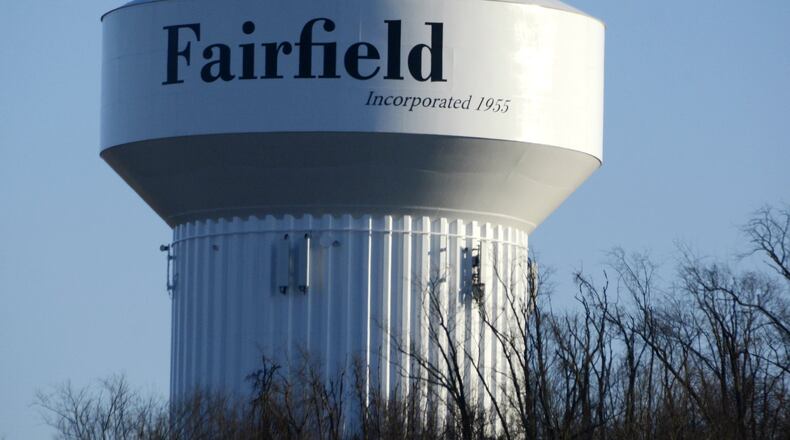“There’s not viruses or bacteria in it, but our safeguard for any sort of virus or bacteria is that we’re adding chlorine to the water before we send it to our system,” he said. “We’re maintaining a chlorine residual of at least 1 milligram per liter, and that’s effective to prevent bacteria, pathogens, viruses, including the COVID-19, to be able to live in the drinking water.”
RELATED: Ohio’s reopening process to begin May 1, DeWine says
To ensure drinking water safety, water departments have implemented pandemic emergency plans, such as staggered shifts, banning public visitors, requiring ill employees to stay home and scheduling employees to work remotely when possible. The Ohio Environmental Protection Agency requires all public water systems to have emergency plans.
“The isolation ensures that if one member of these critical teams becomes ill, they will not affect other water operators or only one maintenance team,” said Martha Shelby, Butler County Water and Sewer director.
Jim Logan, Hamilton’s executive director of infrastructure, said the city’s teams “are always prepared to respond in challenging situations” and will meet the community’s needs.
“Providing reliable and safe drinking water is our top priority, it’s what we do,” he said.
In Fairfield, plant operators have separate entrances and exits, exclusive dining areas and restroom facilities and isolated workspaces.
“Basically, they’re not coming into contact, or within 6 feet of any of our other workers,” Sackenheim said. “That was our first, real course of action.”
RELATED: Fairfield plans for negative economic impact due to coronavirus. The question is: How much?
Almost immediately after Ohio’s stay-at-home order went into effect in March to help slow the spread of the COVID-19, many rushed to stock up on items like food, meat and toilet paper.
In some cases, people bought cases of bottled water, but public utility officials say stockpiling water isn’t necessary.
“People trust the public water supply as being safe,” Sackenheim said. “We’re doing everything we can to ensure the safety of that supply.”
Since the beginning of the COVID-19 pandemic, the Ohio EPA has given municipalities guidelines as the “operation of public water systems to ensure that Ohioans are provided safe drinking water is a critical public health-related responsibility,” spokeswoman Dina Pierce said. The agency has also worked with public water systems through phone calls, email updates and webinars.
The Ohio EPA has created a website to keep the public water systems informed of requirements, guidance and resources available.
“We have very experienced public water system operators across the state that are working diligently to ensure that Ohioans are provided with safe drinking water,” Pierce said.
While the CDC says there is no evidence COVID-19 is in drinking water, similar viruses can live in untreated sewage. The CDC says there are seven strains of coronavirus known to survive and live in wastewater.
Wastewater treatment plants treat the raw sewage before it’s discharged into public waterways for viruses, bacteria and pathogens, Shelby said. And just as water employees are segregated, so are wastewater employees, she said.
“Our wastewater personnel are cross-trained to monitor both our water and sewer operations at all times,” Shelby said. “This not only allows efficiencies during normal times but depth to our operations during special times like we are now experiencing.”
PHOTOS: Butler County adapts to life during coronavirus shutdown
Sackenheim said Fairfield started its ultraviolet disinfection process for wastewater six weeks ahead of schedule as “an extra level of precaution.”
He said wastewater employees receive a series of hepatitis shots when they start, and they will receive a COVID-19 vaccine when it's developed.
“When you’re exposed to raw wastewater, you’re exposed to all sorts of bacteria and pathogens,” he said. “Not just COVID-19, but everything.”
FAQs about drinking water & COVID-19
The Ohio EPA answers frequent questions about the novel coronavirus, COVID-19:
Do I need to boil my drinking water? Boiling your water is not required as a precaution against COVID-19.
Is tap water safe to use for hand-washing? Continue to use and drink tap water as usual. According to the CDC, washing your hands often with soap and water for at least 20 seconds helps prevent the spread of COVID-19.
Do I need to buy bottled water or store drinking water? Continue to use and drink tap water as usual. At this time, there are no indications that COVID-19 is in the drinking water supply or will affect the reliable supply of water.
What should I do If I'm concerned about my drinking water? Contact your local water provider. The World Health Organization states the "presence of the COVID-19 virus has not been detected in drinking water supplies and based on current evidence the risk to water supplies is low."
Source: Ohio EPA

